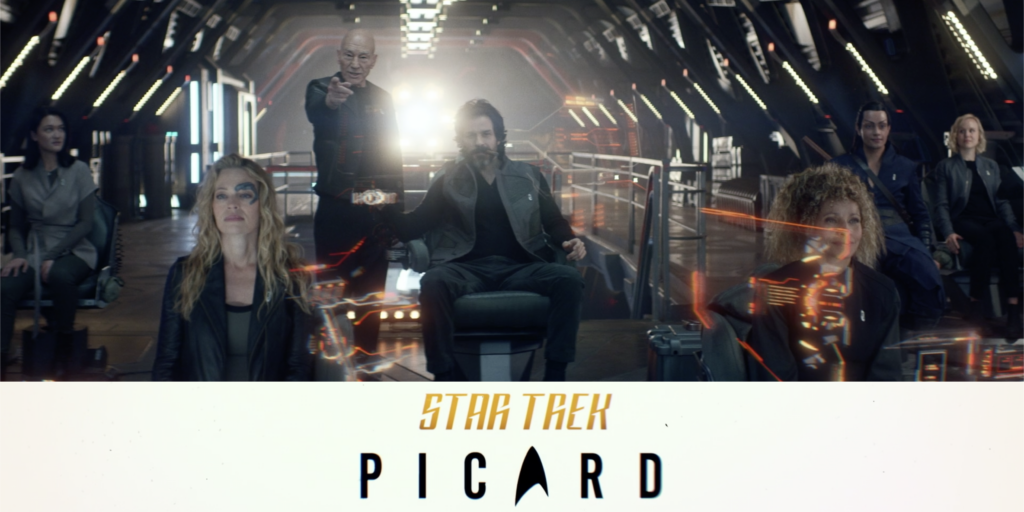
Star Trek unites us. It binds us. It holds our universe together. No wait…that’s the Force. But like the Force, Star Trek fandom is fractured into a light side filled with positivity, patience, and tolerance…and a dark side of anger, resentment, and even hatred—at least when it comes to the newest Star Trek TV series.
I remember when The Next Generation premiered in 1987. While I wasn’t one of those who boycotted the show because it dared NOT feature Kirk, Spock, and the rest, I still wasn’t all that thrilled about what I saw at first. Here’s a few actual snippets of an early review I wrote partway through the first season for my fan club’s newsletter (yeah, I was even reviewing Trek 33 years ago!)…
- So there’s this unknown British actor playing a French captain with a British accent? But even harder to accept: he’s bald! Starship captains need to have toupees!
- Wait, the blind guy is steering the ship?
- They’re all wearing pajamas. I mean, the uniforms look all science-fictiony, but going to the bathroom must be a ridiculous experience! Hey, where is the bathroom?
- Why is the ship’s counselor on the bridge all the time instead of seeing patients?
- If that kid Wesley saves the ship one more time, I amm going to throw something at the TV!
- I do NOT like that starship design at all. The top is a clam, the bottom is a duck, and when they separate, it sticks its tongue out at you.
- Pick a chief engineer already!
- “Captain, the ship is going to blow up in ten seconds, what do we do?” “Conference!”
- If I never see Lwaxana Troi again, it’ll be too soon…same with Q!
- Stop surrendering, dammit!
I still watched the show every week. I even recorded them all on the highest quality SP speed on my VCR (two episodes per VHS tape, with commercials paused out!). I didn’t love the show, but I didn’t hate it either. It wasn’t “my” original Star Trek, but I was willing to give it a chance—even if it was oh-so-easy to make fun of. Part of me hoped I’d get used to it, or it would get better…and eventually, that’s exactly what happened.
Similar things happened with the launch of Deep Space Nine (“how can you “boldly go” anywhere if you’re stuck on a space station?”), Voyager (“shouldn’t the ship be trying to get home rather that stopping every episode to be attacked by the Kazon?”), and don’t even get me started on Enterprise and Discovery!
Each time, however, I made certain to give the shows a chance to grow on me—even Discovery—and find their way. It’s not easy to create and produce any regular TV show, and even more so if that show is the latest iteration of a multi-decade billion dollar franchise!
So with that preamble-ramble out of that way, let’s take a look at the first season of STAR TREK: PICARD…
In the song Star Trekkin‘, Mr. Spock says, “It’s life, Jim, but not as we know it, not as we know it, not as we know it.” Well, here’s the first hard truth about Picard that many fans didn’t get the memo explaining before boarding the La Sirena:
“It’s Star Trek, but not as we know it, not as we know it, not as we know it.”
And that is NOT an inherently a bad thing, folks!
I know that some fans out there wanted the TNG they grew up with and/or remembered from 30 years ago. Basically, they wanted The Orville. Well, I’m sorry, but that was never going to happen. It’s just not practical. The average age of the cast of The Orville is 43. The average age of the TNG cast is now 67…not counting SIR PATRICK STEWART (who turns 80 in July!).
Even if the entire TNG cast did want to come back to reprise their roles on a weekly TV series, most of them are retirement age or beyond and don’t have the stamina they used to. They’re hardly invalids, but like Picard himself, their characters wouldn’t be able to do as much at they did on the Enterprise-D. And trust me: Star Trek: The Geriatric Generation is NOT something you’d want to watch as much as you think you would! Also, it doesn’t make sense that all of those officers would still be serving together 25 years later (Riker and Troi had ALREADY left the Enterprise for the USS Titan).
Also, why just reinvent the wheel? Why NOT try something completely new? What’s the worst that could happen? So the show sucks (which I don’t think it does). Did the world just end? No, we’re just stuck at home! Did the mere existence of Picard suddenly erase 50 years of Star Trek episodes that you still binge-watch over and over and over? Of course not. If you like Picard, great. If you hate Picard, don’t watch it. No need to sit there at your computer trying repeatedly to convince people who like the show that it’s somehow a pice of trash. The rest of us enjoyed it—no need to kill our buzz, bruh.
Okay, so I’d like to share my own final reflections on this first season of Picard…
TEN IS NOW THE MAGIC NUMBER
Back in the days when TOS, TNG, DS9, VOY, and ENT were being produced, television seasons were usually 26 episodes. That is a LOT of work…and a lot of content!
These days, the “new normal” (unless you’re a broadcast network show…and sometimes even then) is shorter seasons of only 10 episodes, maybe even 8 episodes, or occasionally 13 episodes. Again, this is not necessarily a bad thing. You’re not being “cheated” out of episodes. The folks creating these episodes are still putting in the same amount of work and usually similar, if not higher, budgets. Discovery and Picard cost between $8 million and $9 million per episode. Back in the 1980s/90s, TNG (one of the most expensive shows on television at the time) had a budget of $1.3 million per episode, which is about $3 million today adjusted for inflation.
Let’s do some quick math. If made today, 26 episodes of TNG would cost $78 million. 10 episodes of Picard would be about $85 million. (And if you’re curious, 13 episodes of The Orville are $91 million.) So everyone is at about the same level. But creating 26 episodes like TNG used to means a LOT less is spent per episode. This means that shows like Picard (and Discovery and Orville) can be made at a less manic pace and more carefully crafted with more intricacy and complexity.
And you can see it in the production quality of Picard. The series is beautiful to watch—whatever else you might think of it. Nothing feels rushed (other than the scripts for the last two episodes), and the series had a cinematic level of excellence that even some feature films would be hard-pressed to match.
So 10 episodes per season is not an inherently bad thing, folks. It allows for a different kind of viewing experience where fewer episodes are delivered, but each can be of much higher, less rushed quality without having to constantly try to do “more with less.”
SO NOW THAT WE HAVE ONLY TEN EPISODES, WHAT NEEDS TO HAPPEN?
We viewers need to understand what 10 episodes means not just budget-wise but also story-wise. The previous series (except Discovery) were all mostly episodic with two exceptions. The first was the last ten episodes of DS9, which were essentially a 10-part story. The other was the third season Xindi arc of Enterprise. But even those were somewhat episodic in that each episode was still mostly a self-contained story with certain subplots continuing.
As I’ve said previously, Picard was a 9-hour feature film cut into 10 pieces. And really, that’s what on-demand television has become these days. One story or saga divided into 8 or 10 or 13 pieces…and each new season is then another long story cut into 8 or 10 or 13 episodes. So what needed to happen was for the writers to create their season long arc and then figure out how to divide it up into episodes. This is NOT an easy task, folks!
YOU CAN’T PLEASE ALL THE TREKKIES ALL THE TIME
No one ever sets out to make a bad TV series. It doesn’t look good on the resume, for one, but it’s also better to have job security—and getting canceled is the surest way to ruin that plan!
So most production teams, starting in the writers’ room, will try to make their series the best it can be right out of the starting gate…and most will fail. Think about TNG. The first ten episodes of that series were underwhelming and included such winners as “Code of Honor” (“Then you shall have no treaty, no vaccine and no Lieutenant Yar!”) and “Justice” (planet of the joggers)…and episode 11 was “Haven” which introduced Lwaxana Troi and almost had Deanna married off.
In other words, not exactly the pick of the litter.
It took TNG at least a full season for the actors to really find their characters and for the writers to start getting a true feel for the show and its dynamics. Season two was a bit better, but we all know that it wasn’t until MICHAEL PILLER came on board in season three and made the show more about the characters that TNG began to truly hit its stride. In other words, it took 25 to 50 episodes for TNG to get its footing and become consistently good. So far, Picard has had just 10 episodes.
What I’m trying to say is, even if you don’t like the show, give the Picard creative team a chance just like you gave the TNG, DS9, VOY, and ENT teams a chance. Don’t condemn after just 1o episodes.
WHAT DID THEY GET RIGHT…AND WRONG?
I don’t need to go point-by-point through all the minutiae. I’ve done that for ten weeks. You know I don’t like the swearing and that I love the acting. And there’s no need to debate Picard’s awful French accent or whether there were too many Trekkie easter eggs, too few, or just enough.
No, instead I want to look at this question from a much higher level. Here’s what I think they got right (and I know many of you will NOT agree with me, so let me know why in the comments)…
They took a chance
“Risk! Risk is our business!” One of Kirk’s best lines is just as true for the writers and producers of Picard as it was for the original Enterprise crew. As I said above, this was never going to be Next Gen: Phase II. So just accept that and figure out something fresh and new. And that’s what they did.
Whether or not they succeeded is obviously something countless fans will debate until our fingers are numb. But I give the creators credit not only for trying but trying REALLY hard. The writers significantly fleshed out this galaxy of 2399…from the Federation’s and Starfleet’s post-traumatic stress and isolationism to the post-supernova Romulan Empire…from Picard’s personal history to the histories of the other main characters, both established (Seven, Hugh, Riker, Troi, Data) and new (Raffi, Rios, Jurati, Elnor, Soji). Of course, not every character got as much time for their backstories to unfold (I really want to know more about those Tal Shiar housekeepers at Picard’s villa!), and most of the villains weren’t developed much at all (Oh, no they were not!). But overall, the writers really committed to the universe they were creating for us.
It was really only about Picard…and also about everybody else
Star Trek has always been an ensemble cast, led by a leading man (or woman) with some characters more prominent than others. But throughout the various series, each character would get “his”or “her” A-stories or B-stories or C-stories in individual episodes.
When one thinks about the entire story arc of Star Trek: Picard, it’s overall a “Picard episode.” He gets the A-story of his journey from retired, disillusioned recluse living with anger and regret and sadness at a life (and its meaning) fading slowly into nothing…to a newly empowered, self-confident veteran commander who still has a LOT to offer the galaxy. This first season was not only Picard’s quest to help Soji and the synths but also Picard’s journey to rediscover his true self.
But at the same time, most of the other characters got “their” episodes. Not as much screen time, of course, but enough for us viewers to begin to know—and love?—them and want to see more in season two. (And if you don’t want to see more in season two, why are you even bothering to read this blog?) No one of the main cast—except maybe poor Elnor—was cheated of their chance to shine in the spotlight at least a little bit. And thanks to those B-stories and the magnificent performances put in by the actors, this series was, for me at least, rich and satisfying. And yes, I do want more!
So what did they get wrong?
Too much was going on
I like a complex plot line as much as the next guy, but I think the writers miscalculated and threw too many ingredients into the soup. We were juggling three villains, a Borg Cube Artifact, Romulan secret police, Romulan even-more-secret-cult police, Romulan warrior nuns and their boy Elnor, ex-Borg, an XB Fennir Ranger (Seven), Bruce Maddox on the run, the search for Maddox, the murder of Maddox, Dajh is Data’s daughter, Soji is Dajh’s twin sister, they’re both androids, Soji’s romance with Narek, Narek’s betrayal of Soji, Starfleet losing its way, Picard’s growing dementia (which didn’t really become much of a “thing”), Raffi’s addictions and estrangement from her son, Rios’ relationship with Agnes, Rios’ relationship with his dead mentor and growing attachment to Picard, Elnor’s hugs, Hugh, the death of Hugh, Romulan infiltration of Starfleet, Agnes’ deadly sin (and the non-resolution of it), Seven almost becoming a Borg Queen, Picard’s Tal Shiar housekeepers, the Admonition (let’s begin), the Admonition (look out synths), we know you’re wishin’ that we’d go away, but the Admonition’s here and it’s here to stay (sorry, channeling Mel Brooks), the synth attack on Mars, the synth planet, the killing of Flower and Jana, Sutra’s reaction to losing her synth-sister, Dr. A.I. Soong and his magic golem, the second death of Data, and of course, the synthetic Kraken from beyond time and space hell-bend on destroying all organic life. Oh, and Kestra and Riker and Troi, oh my!
That’s a LOT to squeeze into 10 less-than-an hour each episodes!
I can’t fault them for making the attempt to juggle so many ongoing storylines and single events, but I just feel that, in trying to deal with everything, several important plot points suffered from lack of development. The most obvious example is how Starfleet suddenly came to its senses and tried to help the synths rather than destroy them or at least keep them out of the Federation (banned, remember?). Starfleet’s and the Federation’s loss of compassion and newfound isolationism was such a large part of the set-up in the first few episodes, and then it was suddenly “all better” in the last 20 minutes. But we never got to see how it happened.
Stop trying to destroy the frickin’ universe!
Go big or go home! After 79 episodes of TOS wherein the universe was only threatened with annihilation a small handful of times, the first Star Trek motion picture brought forth a threat to the entire Earth. The second and third introduced Genesis, which could destroy any planet in seconds. Trek IV had a mysterious probe vaporizing Earth’s oceans. Trek VI almost brought war to the Alpha Quadrant. Generations almost destroyed a solar system. First Contact threatened to assimilate Earth in the past and erase the Federation. And don’t get me started on JJ Trek!
Discovery ended its first season by stopping a war that had threatened to end the Federation. And their second season finale saw a race to stop Skynet, er, Control from taking over the Federation. The stakes are getting higher and higher and higher!
Why?
This new series didn’t really need to raise the stakes so far as to threaten all organic life in the universe. There was so much more to Picaard already. But maybe the writers just weren’t confident enough in themselves and their other 47 story points and felt they needed to included a big VFX-heavy finish with hundreds of starships on the screen at once, a mecha-techa space Kraken coming through a breach in the fabric of reality, and giant space orchids getting blasted to pieces by 218 warbirds.
With luck, the writers have gotten it all out of their system now, and season two won’t be building up to an even BIGGER galactic menace that threatens to destroy the very atoms of the universe. A little less “bigger and better” might actually make the series bigger and better. We shall see…
FINAL THOUGHTS
My best friend really, really didn’t like the last two episodes. He’d loved the first eight, but the final two left such a bad taste in his mouth that, by the end, he was trouncing the entire series. To me, the last two episodes were just misfires—the “Justice” and “Code of Honor” (first season TNG episodes)—of Picard‘s first season…and still not all bad.
I found myself wondering, as I prepared this blog, what would have happened had CBS All Access decided to release the full 10 episodes of Picard all at once and allowed fans to binge-watch over a single weekend. Many fans did, in fact, do exactly this when CBS made All Access free for a month to anyone who wanted to see the full Picard season…and many fans who binged-watched loved it. Would more fans have felt this way if we didn’t have seven days to pick each episode apart week after week?
Of course, full-season releases on the same day are a Netflix and Prime thing. All Access and Disney+ are trying to make more money from longer subscription periods by releasing new episodes weekly for a few months. It’s partly greed and partly practical business sense. The latter two streaming services have very limited original content, so they need to parse it out to keep subscribers longer (or at least CBS does). When you’re constantly producing new content (like Netflix and Prime), you can afford to release whole seasons at once.
Anyway, despite some missteps along the way, I think CBS overall succeeded in their first season of Star Trek: Picard. It’s a quality, entertaining show, mostly well-written, very well acted and directed, with great music, costumes, makeup, lighting, and visual FX (and mercifully few lens flares!). Could things have been better? Sure. And things could also have been a lot worse…
In the end, I’m not only willing to stick with the series, but I’m actively looking forward to season two. Perhaps the writers will feel less pressure to be so story-driven and instead give the characters more of a chance to breathe and develop. Maybe they’ll supply a little more detail about how Starfleet and the Federation got over their PTSD, or maybe actually deal with Agnes Jurati’s unpunished, cold-blooded murder of Bruce Maddox. Maybe we’ll get to see some more guest stars like Whoopi Goldberg (who doesn’t want to see Guinan?) or Levar Burton or Michael Dorn?
TNG might be over, but Star Trek lives on…and so do these amazing characters and the actors who portray them. Perhaps they’ve aged a little, but like a fine vintage wine, aging just enhances the flavor and enjoyment.
Here’s to season two of Star Trek: Picard…

P.S. – I know I promised last week that this week’s look back at the entire season would be “MUCH shorter.” Looks like I was wrong. Thanks for reading.

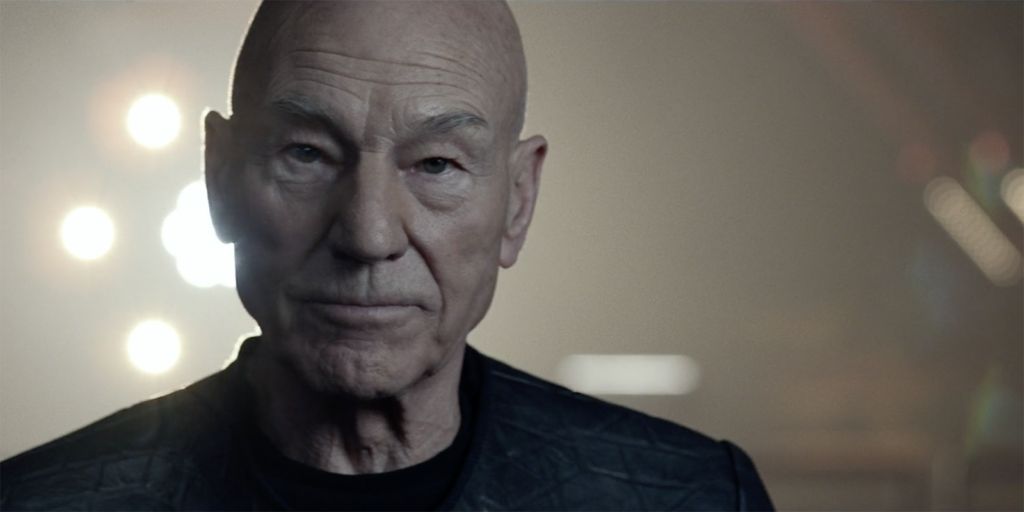
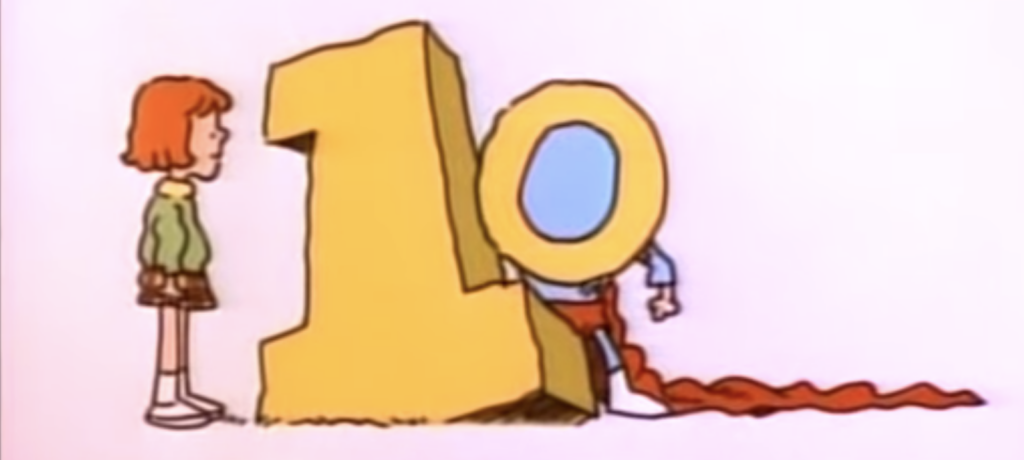
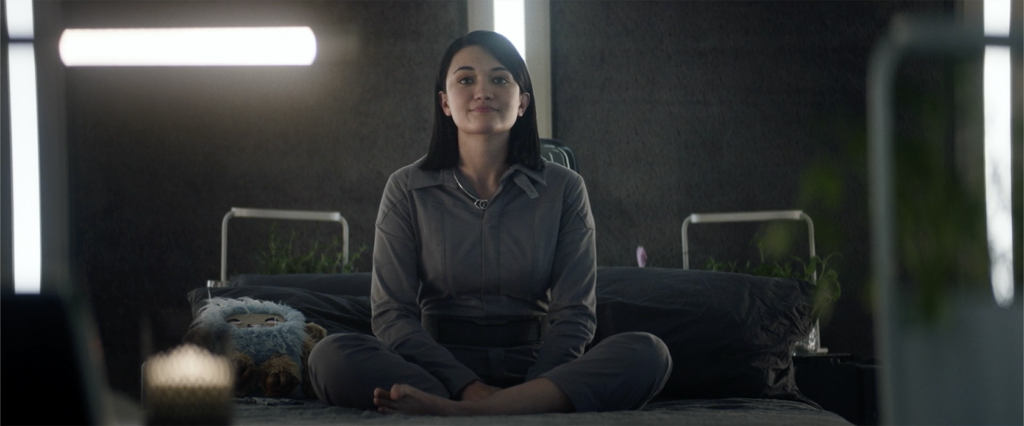
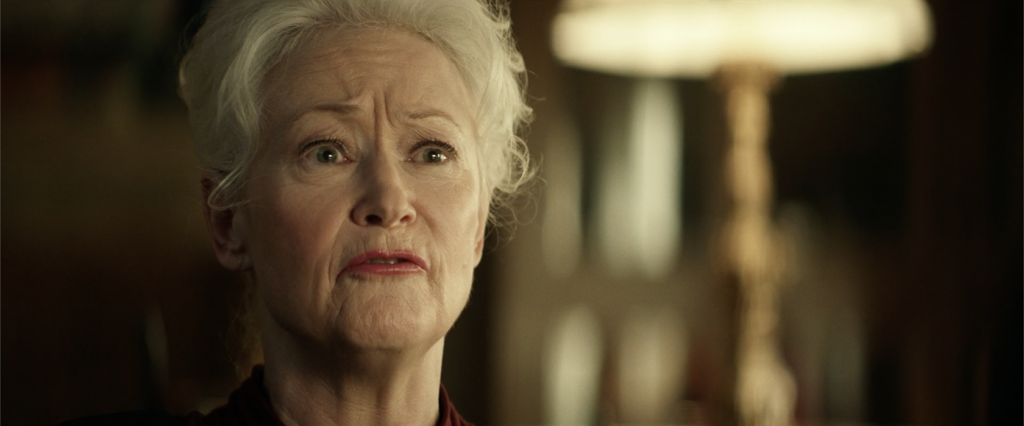
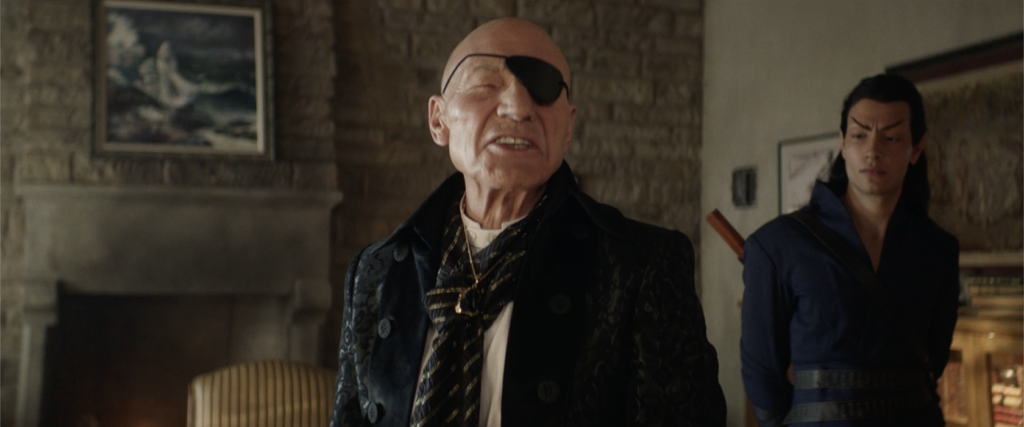
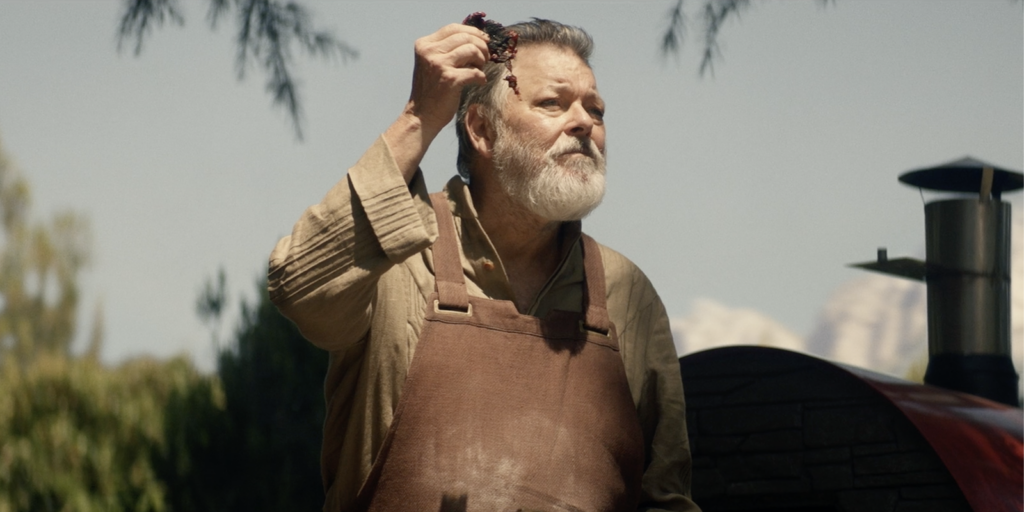
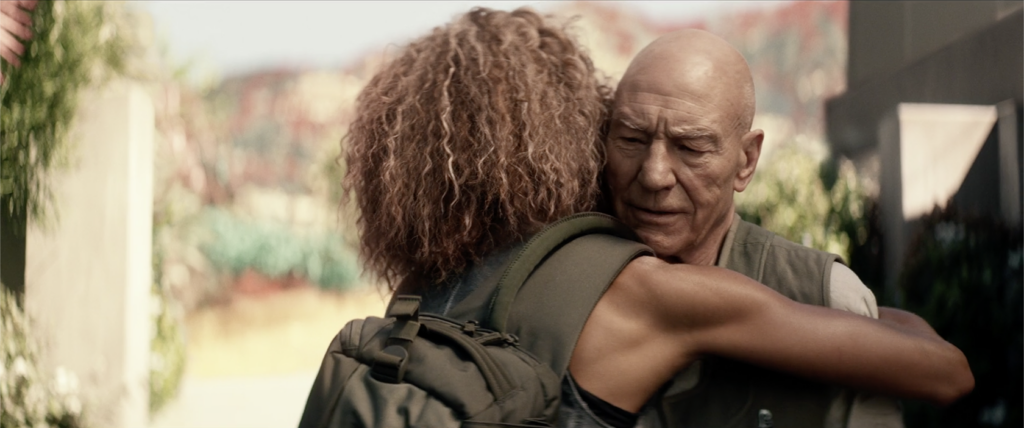
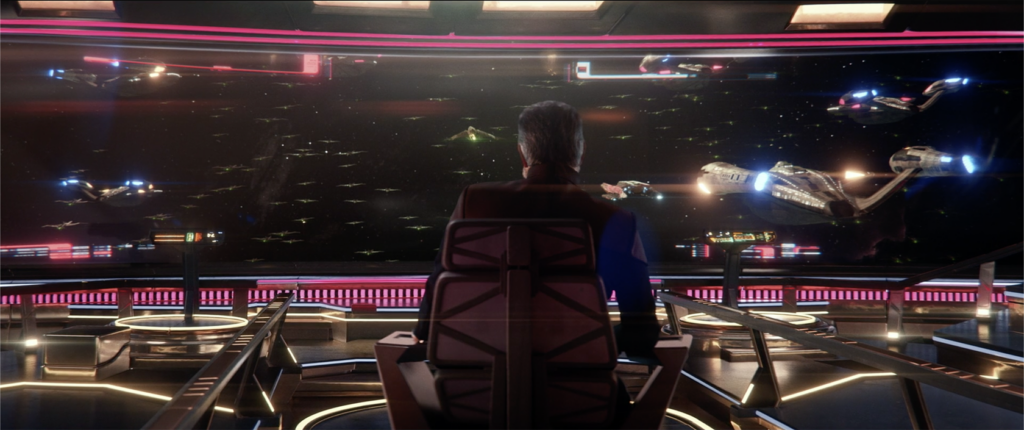
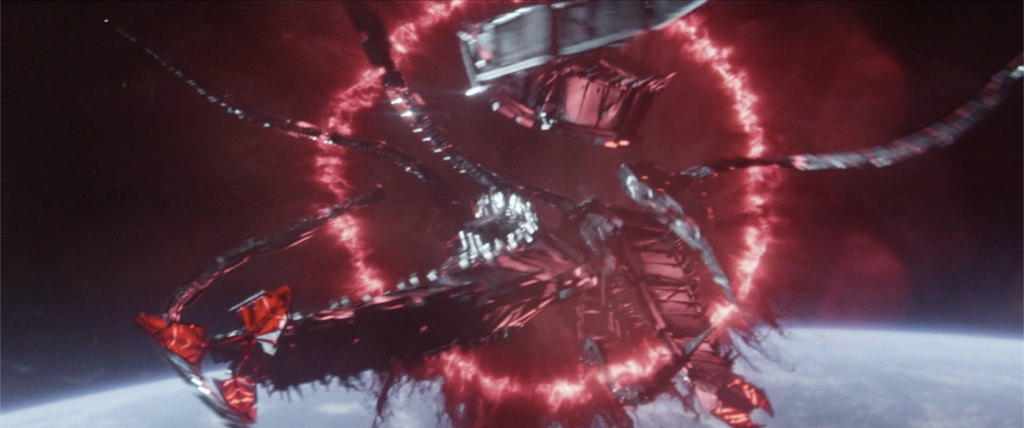
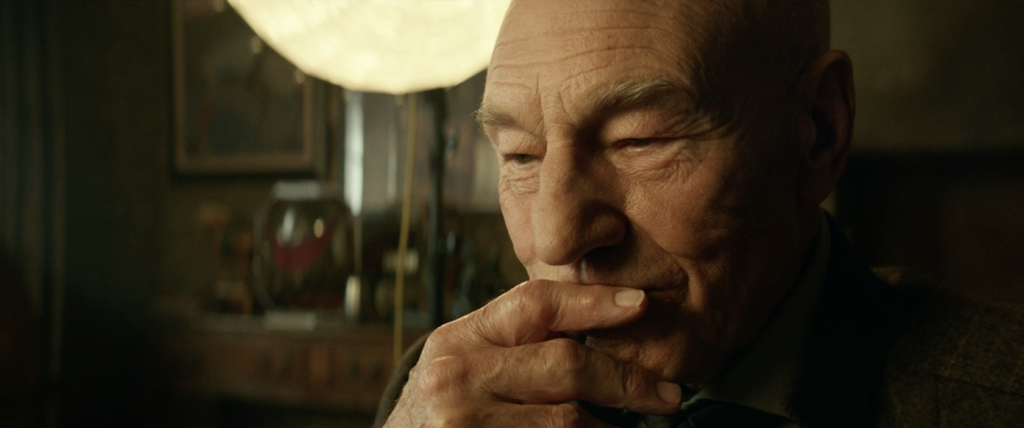
VERY good write-up. I’m looking forward to the final two episodes this season.
Doug
I hope you enjoy them, Doug.
Jon
Just going to chime in a few points.
A: I agree completely
B: I’ve rewatched it all and, for the most part, enjoyed it
C: Patrick Stewart was well known to us in the UK…but let’s dive in.
TNG certainly had its fair share of naff season 1 episodes, but the self contained episode storylines meant you did not have to;
A: Reintroduce characters
B: recap what happened last week
C: didn’t need to engineer a cliffhanger each week.
The issue with Picard is not that there is an issue with Picard per se. The issue is that the suits and writers don’t seem to have the confidence to actually tell a serialised 10 part story as if it is a 10 part story. They are adhering to a quasi-single story episodic structure in some of the writing. That is what cripples Picard from being a great series out of the gate.
I’ll explain.
If you trust your intent and your viewers memory, and bearing in mind it’s a streaming service so you can rewind, rewatch etc, the need to endlessly recap and repeat is not necessary. The writers (or producer or someone) can’t help saddling every episode with;
A: despite a recap upfront, let’s have characters recap “to eachother”
B: let character A tell character B what they also told character C, who may also tell D, and
C: let’s make sure we remind people it’s Trek, just in case.
Concrete example, Picard gets fried by admiral hubris, she tells Oh she fried Picard, Oh tells “Rizzo” the admiral fried Picard…and that’s just one example.
I can’t agree more with all of your points Jon, but there is a more fundamental issue here. These production factories need to understand and trust their audiences intelligence, focus and the bloody platform they put this out on.
If they want repeat viewings they had better commit, like Game of Thrones did (yes it ended badly), and maybe take a leaf out of the genius (structurally speaking) that KILLING EVE is. Viewers will not rewatch something if it is tedious. Single story episode get revisited coz with over 700 eps of Trek, viewers will forget many and can dive in for a self contained fix. In 10 years time viewers will not rewatch a 9 hour 10 part film if they only recall it had something to do with space orchids and was a bit repetitive.
If you are telling one story, tell one story (not 47 ). Add a few side shoots, sure; maybe even a full branch, but keep it;
A: relevant to the main story
B: consistent with the characters your shaping
C: interesting and dramatically challenging
I won’t act as an apologist for the clumsiness of huge swathes of Picard’s writing, though I agree Jon, making TV is tuff, and no one sets out to make bad TV. The issue is one of quality and commitment to your format. Don’t try to sit in both worlds.
I’m increasingly pissed of with watching TV where 40 min into a 1 hour show the post ad segment begins with a recap of the first 40 min…(having had a recap at the 15 and 30 min mark)… You know what I mean e.g. ” we join John and Sally who have quit big city life to start an Alpaca farm in norther Vermont, and they suffered a setback after a tough winter”.
IF YOU DIDNT WATCH THE FIRST HALF, I AINT TELLING YOU WHAT YOU MISSED! Rewind instead.
Don’t believe me? Watch Killing Eve and be amazed at what skill the writers deploy.
I must say, Picard hit a lot of good nails on the head. Shame some of them got bent on the way in.
In closing, some advice to the writers and producers of Picard;
A: commit your story structure to the format with confidence
B: have confidence that your audience have an intelligent memory
C: show, don’t tell.
Fran, OUT.
Remember that this was the first season and also Michael Chabon’s first experience as a show-runner and leader of a writer’s room (and Michael won’t be doing either next season). So not only was there a learning curve for the show’s writers and producers, there was a learning curve for the show-runner himself. Hopefully, season two can start off with some more confidence and momentum, not saddled down with wondering “Can we do this? Is it okay? Will it work?” They have their characters now, their ship, their universe. Maybe things can move forward a little more smoothly from here.
We shall see!
Picard couldn’t even put Vulcan style makeup on the Romulans, like Leonard Nimoy had to indicate there was green blood flowing in the arteries and veins under his skin! Romulans are supposed to be the same species. CBS didn’t want to pay the makeup artists and the actors for the necessary time in the chair to make it right!
I’m sure the TNG Paramount machine would have pared down the entire season of Picard into 3-4 42 minute, fast paced, exciting, episodes, leaving 6 more episodes to advance the Picard story way beyond where is is today.
One thing is clear going forward. Despite lifting the Synthetic ban, Picard is now one of them, and Romulan friendly to boot and it ain’t gonna be that easy to erase the Mars disaster that this innocent generation will find plenty of people who have a big grudge with the people who killed their mommies and daddies! Remember the girl in the school in the short? If she survived, and some or all all her classmates, they now have a chance to interact directly with the next generation of the synthetics that rocked their lives in a horrible way. I believe that Utopia for the next generation of synthetics is over. Now on to the gritty reality of real life for them and Soong’s descendent and for Synth Picard in Season Two!
Sounds like you’ve got this whole thing pretty much figured out, Ron. 🙂
PS
Since we are all locked up….how about this.
Awesome 10 part series, incredibly well written but with dodgy sets, studio bound budget, 70s video camera shoot, production values at the low low BBC budget end …but expertly acted AND cast…
I Claidius…(with Patrick Stewart as Sajanus, with hair!!!!)
And a very young John Hurt as Caligula.
Awesome, out the gate…
(Viewer discretion advised……seriously)
I did love “I, Claudius.” It helped me appreciate the Londo Molari plot-line of Babylon 5. 🙂
On the whole, I loved Picard. Much more than Discovery. I too am looking forward to Season 2.
First, I appreciate the laugh that this engendered. With the news being what it is, I look for something fun and this met my requirements: “I do NOT like that starship design at all. The top is a clam, the bottom is a duck, and when they separate, it sticks its tongue out at you.”
On to my critique of your critique. Whether the pacing is too fast or two slow or both depending on episode is to me a matter of taste. The last two episodes put me on the edge of my seat, mouth open, thoroughly enjoying the wild and fast funhouse ride.
Also, if a season is put in a baseball analogy, Season 1 was a home run. The ball could have gone further out of the park, but given what you wrote and what I agreed with about other Trek series, Picard was a trip around the bases.
One final note. I’ve noticed in some TV series and novels and movies that the stakes keep getting higher and higher as time goes on. TNG on TV ended with the entire universe of time and space at risk. Picard got there in one season (apparently but we’ll see in Season 2).
Now I’m looking forward to, in the words of the departed Paul Harvey “the rest of the story”.
I see the first season of Picard as a close play at third for a triple. It wasn’t a home run because, while edge-of-your-seat action in the last two episodes, the writing was still sloppy. I can say the same thing about the JJ Abrams Trek movies. Edge-of-your-seat start to finish, but way too many leaps in believability and logic, too many convenient coincidences, one-note characterizations, and way too much writing to the beats (the “check boxes”).
But there’s no reason season one should have been a home run. After all, not every at-bat knocks it into the bleachers. And a triple is still a solid and impressive hit. I’d say the first season of TNG was a long foul ball, DS9 and Voyager barely singles, Enterprise season one a wild pitch that hit the batter, and Discovery’s first season was a checked swing called strike. In that way, Picard did have the strongest start of the modern-age Treks. But I feel like there’s still room for season two to hit it out of the park. 🙂
Johnathan,
Any fandom is going to be split on what makes it good and bad. There have been arguments about the Star Trek Fandom since it became a cult classic in the 60’s and I am sure some of them have been just as heated as the ones we are having today.
Like you I remember when TNG first premiered, and I honestly think you are kinda exaggerating the list there as neither me or my friends that watched the show neither noticed or really cared. The same was said for the other classic shows. It really wasn’t till STD came along that I really started looking at what Star Trek was becoming. scratch that, it was with the first JJ movie. Like Picard and even STD the new ST movies are both good and bad, though I think the bad far outweighs the good.
While I can agree with some of your points, and to be honest Picard was not a bad show. However, it really wasn’t a good one either. Like you I do kinda like the serialized aspect of the show, but at the same time the story has to be more engaging for it to keep people entertained. Especially if CBS doesnt want to stretch it out over ten or more weeks. Remember back in the 80s and even 90s there tv mini-series that would be on for two or three nights a week or even one night followed by the conclusion the next week. I think that Picard and even STD should follow that route. Especially since CBS wants to do serialized seasonal stories instead of the normal strange anomaly\alien or something of the week format. CBS I think just needs to bite the bullet and put all the episodes online at the same time.
I like how you went into a little bit of history of early TNG and mentioned that it really did not hit its stride till the third season when Michael Pillar came onboard. While you are right, you did fail to mention that one of the reasons that season one and two were so rocky was Gene himself(and if the rumors were true his lawyer), and his his vision for Star Trek and how it should be written. I know for a fact there were arguments in the writers room during those first seasons.
As to Picard itself, the show was like STD a hot mess. The overall story and writing is still bad fan fiction and in some cases takes plot points from other media and copies it. If this show did not have name Star Trek in its title it would be consider a bad “B” grade movie.
Overall I would give the series a 4 out 10.
Well still intending to get back into STP though seriously put out by episode one though spoiler alert apparently Data doesn’t come back there is no Worf and they kill Picard apparently, which does not inspire me to take it up again. However reading your review you do seem to be trying to have your cake and eat it as we say over the pond. as far as I follow your argument and the maths for the same price we get only 40% of what we used to get however that 40% is of a much higher quality in all respects. Well it is certainly a point of view in that if each episode was over twice as good then it evens out and that of course is a subjective opinion.
However you then go on for several paragraphs about how there is no time for character development or for plot points to be completely resolved. Well it does seem to me that if there was 26 episodes this would not be a problem. This phenomenon is not limited to Just Star Trek Doctor Who used to have many more episodes even in the days of Stephan Moffat he used to do 13 and also some spin off series whereas the present incumbent can only manage 10 plus a special and has already had a year off due to “Workload”. Could the truth be that they are simply not as good as the older generation?
There is also the issue that there may well not be a second series of STP or a third of STD if CBS/Viacom go to the wall though obviously they are not publishing the viewing figures. Other “woke” movies and TV series are either losing money or leaving a lot of cash on the table as viewers turn off. Now the entertainment industry seem to have an inexhaustible well of money to produce these types of entertainment and claim moral superiority as an excuse even when it is obvious that they could of made a lot more if they had just concentrated on injecting entertainment value instead. However given the beer bug will they be able to keep doing so?
Will they be looking for a cash injection and be giving Seth Macfarlane a ring regarding his previous offer what’s more would he even be interested now after all he has a successful Star Trek series already? If those spoilers I have heard are true I am not sure that I even want anymore Star Trek and I have a feeling that many more fans will feel the same.
Sorry for the delay in posting your comment, Glenn. I’d wanted to give it a proper response, and then so many other things kept stealing my attention.
When it comes to Picard and its number of episodes, the simple fact is that the days of 26-episode seasons are over…even for network TV shows (now they max out at 22 per season). But on a streaming service, expect shorter runs…usually 15 episodes max and usually more like 8 or 10 (with 5 or 6 usually being a minimum). As such, the story structure must change, and purely episodic TV like TNG has gone the way of the dodo. That extinction has taken with it the traditional idea of a “Riker episode” or a “Data episode” or giving a single character the A-story as we learn something new about them. Now the various characters share A-stories and B-stories, and characters are developed not just through self-reflection and dramatic events but also through their relationships with others. It’s just the new normal, Glenn, and if you don’t like it, there’s 650 hours of old Trek to watch. But complaining about new Trek being different than old Trek is like complaining that not enough people use fax machines anymore. 🙂
As for your conjectures about finances and business strategy, you’re making an error that many TV viewers also make: you think you know better than the suits. Although this might sometimes be true when the suits are really idiots, the fact remains that when it comes to long-term strategic investment in new technologies and preparing the corporation for coming and current trends, there are a lot of REALLY smart people doing thorough analyses of consumer behavior, cost risk versus profit potential, and a host of other things that require post graduate level education to research, determine, and understand. In short, CBS knows what it’s doing in terms of serving its shareholders, and they’ve determined a course of action which includes development of their tent pole franchise (Star Trek) to be accessible and attractive to as wide an audience as possible. This audience does not necessarily include traditional “Trekkies.” It doesn’t necessarily exclude them either. But CBS is still figuring out what the balance needs to be, which is why season two of Discovery had so many changes from season one (the addition of Pike and Spock, the return of the Klingons’ hair and familiar D7 design, the visit to Talos IV, etc.). Picard was yet another experiment. Lower Decks will be a third experiment. Each brings with it more data for the suits to consider. But trust me, they know a lot more than you do because they work inside the building in Studio City, not outside.
As for Seth MacFarlane, I thought that rumor had been officially determined to be a hoax. It was never covered by Variety or the Hollywood Reporter, and such a major news story, if it actually were true, would certainly not be ignored by the major entertainment industry journals.